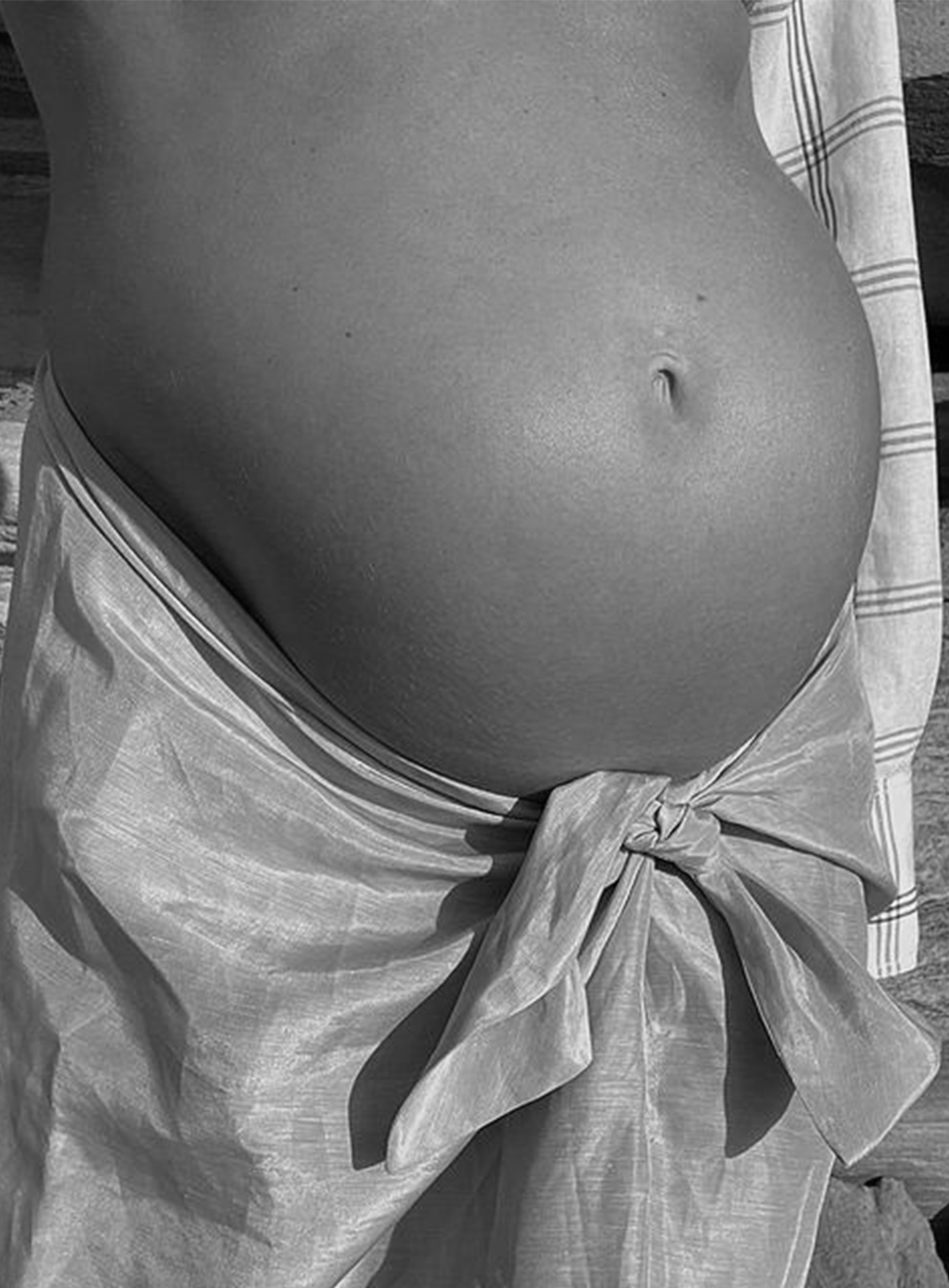Why We Should Be Talking About Employer-Sponsored Egg Freezing
Perhaps a symptom of the pandemic and a feeling of time slipping away, the conversation around egg freezing has become more common for women across the globe. The concept of fertility preservation lends itself to the idea of women being able to harness more control over their reproductive future, familial desires and potential career goals, simultaneously. However, with the cost and process of egg freezing often arduous, the accessibility to it is minimised for many. A new avenue to help combat this lack of access has recently been explored in the United States of America and has started to make waves in Australia: employer-sponsored egg freezing.
Employer-sponsored egg freezing sees a company offer the process as an employee benefit, with a 2017 report speculating Australian companies may be looking at introducing it into their policy.
“The concept of employer sponsored egg freezing was introduced back in 2014, when Facebook and Apple announced that they were going to introduce it as an employee benefit, causing much public attention, controversy and discussion,” says Dr Molly Johnston, lead author of Monash University’s study, Employer-sponsored egg freezing: carrot or stick? in which more than 650 Victorian women were surveyed on the topic. “Since then, a number of other companies have followed suit, with the latest data suggesting one in five large US companies now offer egg freezing as an employee benefit.”
In the last decade, demand for egg freezing has been on a steady incline, with the number of freezing cycles carried out annually having risen by more than 800 per cent between 2010 and 2018. However, egg freezing is not currently covered under Medicare and the average cost per cycle is reported to be almost $5,000. Storage is free for the first six months, the consumer then paying $500 annually for ongoing storage. Success rates vary, so it is not possible to provide an accurate pre-procedure assessment of the chances of pregnancy after freezing. IVF Australia expects a stimulated cycle would result in the collection of 10-15 eggs, with 10-20 eggs in women under the age of 35.
Advocates of employer-sponsored egg freezing believe it can be a progressive step towards achieving truly equitable workplaces, providing an additional means of support to women considering delaying starting a family and that having the conversation itself is a positive sign of changing attitudes.
“It’s important to point out the whole concept of employer-sponsored egg freezing has been developed to bridge a gap between the unaffordability of egg freezing in general, and if this was something that people could access affordably, then there would be less need for employers to offer this,” explains Dr Johnston.
“I think what employer-sponsored egg freezing does is point to the issue that egg freezing is mostly an extremely expensive procedure that not everyone can afford to access.”
It is worth acknowledging the discussion of egg freezing as an employee benefit melds the line between professional working life and personal life too intimately, with the idea it could provide employers a means of controlling their staff’s personal goals and biological timelines. Dr Johnston says that there may be a role for governments to play in combating this.
“There is possibly scope for a role for the state in safeguarding the conditions under which employer-sponsored egg freezing is offered, which could include ensuring appropriate and accessible information is provided to employees so they understand what the procedure is about, so they can have an understanding of what the associated risks are and what their expected outcomes could be,” explains Dr Johnston.
“This may help them make informed choices. If you are introducing egg freezing as a benefit, ensuring there are other family friendly benefits available for supporting people once they have the children is also important, meaning it should also be offered alongside other benefits such as parental leave and flexible work arrangements so that people are supported to not just delay having children, but also ensuring when they do want to have children there is ample support.”
Those who were opposed to offering egg freezing as a work perk, the survey found, believed it to be a personal decision, with the responsibility to finance the process in and of itself. There was concern that the financial involvement of employers could undermine reproductive autonomy.
“For some [women], they believed the individual is responsible for their family planning, including when they want to have children and if they choose to delay it until later in life and need assistance through IVF, then it’s their responsibility to fund the procedure because it was their choice to postpone having children,” says Dr Johnston.
“The other way that this was conceptualised was some people were concerned employers have a conflict of interest, and by offering access to egg freezing, employers may be motivated to keep employees in the office and prioritise work over family.”
At its crux, employer-sponsored egg freezing encourages the wider conversation around female reproductive agency to remain in the public eye, as it is relevant to more than half of the Australian population. With workplaces continuing to adapt and support women, this could be an extension of said support, whilst adhering to fully informed, voluntary decision making principles.
Image: @emelinaah via Instagram
Why We Should Be Talking About Employer-Sponsored Egg Freezing
Perhaps a symptom of the pandemic and a feeling of time slipping away, the conversation around egg freezing has become more common for women across the globe. The concept of fertility preservation lends itself to the idea of women being able to harness more control over their reproductive future, familial desires and potential career goals, simultaneously. However, with the cost and process of egg freezing often arduous, the accessibility to it is minimised for many. A new avenue to help combat this lack of access has recently been explored in the United States of America and has started to make waves in Australia: employer-sponsored egg freezing.
Employer-sponsored egg freezing sees a company offer the process as an employee benefit, with a 2017 report speculating Australian companies may be looking at introducing it into their policy.
Image: @emelinaah via Instagram
“The concept of employer sponsored egg freezing was introduced back in 2014, when Facebook and Apple announced that they were going to introduce it as an employee benefit, causing much public attention, controversy and discussion,” says Dr Molly Johnston, lead author of Monash University’s study, Employer-sponsored egg freezing: carrot or stick? in which more than 650 Victorian women were surveyed on the topic. “Since then, a number of other companies have followed suit, with the latest data suggesting one in five large US companies now offer egg freezing as an employee benefit.”
In the last decade, demand for egg freezing has been on a steady incline, with the number of freezing cycles carried out annually having risen by more than 800 per cent between 2010 and 2018. However, egg freezing is not currently covered under Medicare and the average cost per cycle is reported to be almost $5,000. Storage is free for the first six months, the consumer then paying $500 annually for ongoing storage. Success rates vary, so it is not possible to provide an accurate pre-procedure assessment of the chances of pregnancy after freezing. IVF Australia expects a stimulated cycle would result in the collection of 10-15 eggs, with 10-20 eggs in women under the age of 35.
Advocates of employer-sponsored egg freezing believe it can be a progressive step towards achieving truly equitable workplaces, providing an additional means of support to women considering delaying starting a family and that having the conversation itself is a positive sign of changing attitudes.
“It’s important to point out the whole concept of employer-sponsored egg freezing has been developed to bridge a gap between the unaffordability of egg freezing in general, and if this was something that people could access affordably, then there would be less need for employers to offer this,” explains Dr Johnston.
“I think what employer-sponsored egg freezing does is point to the issue that egg freezing is mostly an extremely expensive procedure that not everyone can afford to access.”
It is worth acknowledging the discussion of egg freezing as an employee benefit melds the line between professional working life and personal life too intimately, with the idea it could provide employers a means of controlling their staff’s personal goals and biological timelines. Dr Johnston says that there may be a role for governments to play in combating this.
“There is possibly scope for a role for the state in safeguarding the conditions under which employer-sponsored egg freezing is offered, which could include ensuring appropriate and accessible information is provided to employees so they understand what the procedure is about, so they can have an understanding of what the associated risks are and what their expected outcomes could be,” explains Dr Johnston.
“This may help them make informed choices. If you are introducing egg freezing as a benefit, ensuring there are other family friendly benefits available for supporting people once they have the children is also important, meaning it should also be offered alongside other benefits such as parental leave and flexible work arrangements so that people are supported to not just delay having children, but also ensuring when they do want to have children there is ample support.”
Those who were opposed to offering egg freezing as a work perk, the survey found, believed it to be a personal decision, with the responsibility to finance the process in and of itself. There was concern that the financial involvement of employers could undermine reproductive autonomy.
“For some [women], they believed the individual is responsible for their family planning, including when they want to have children and if they choose to delay it until later in life and need assistance through IVF, then it’s their responsibility to fund the procedure because it was their choice to postpone having children,” says Dr Johnston.
“The other way that this was conceptualised was some people were concerned employers have a conflict of interest, and by offering access to egg freezing, employers may be motivated to keep employees in the office and prioritise work over family.”
At its crux, employer-sponsored egg freezing encourages the wider conversation around female reproductive agency to remain in the public eye, as it is relevant to more than half of the Australian population. With workplaces continuing to adapt and support women, this could be an extension of said support, whilst adhering to fully informed, voluntary decision making principles.
















Comments